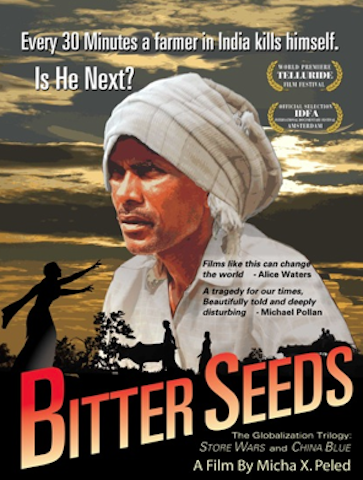GUEST POST by Sarah Harder
Where: 979 Victoria Street, Kamloops, BC
Date: Tuesday, April 9, 2013
Bring Your Lunch: 12:00noon-1:00pm
Genetically Modified (GM) Alfalfa may be grown in Canada as early as this spring. Commonly harvested as hay, alfalfa is a high-protein feed for animals like dairy cows, beef cattle, lambs, poultry and pigs. It is also used to build nutrients in the soil and naturally suppress weeds and is thus very important for organic farming. It is a perennial plant that is pollinated by many kinds of bees so GM Alfalfa will inevitably cross-pollinate with non-GM and organic alfalfa, contaminating farms and threatening organic certification and the livelihoods of family farmers across Canada.
Monsanto’s genetically modified alfalfa could be registered for use this April. GM Roundup Ready Alfalfa varieties have just been cleared for the last step before they hit the market — all they need now is a final rubber-stamp by the Canadian Food Inspection Agency.
A rally here in Kamloops will be held this Tuesday, April 9th, 12:00noon to 1:00pm, in front of MP Cathy McLeod’s office, 979 Victoria Street. Concerned citizens stand with farmers across Canada; there will be simultaneous rallies in cities across Canada. Show our support to stop the release of GM Alfalfa in eastern Canada. This rally is supported by the Shuswap Thompson Organic Producers Association (STOPA). Also bring a picnic lunch with food items that are related to alfalfa such as: meat, dairy, honey, sprouts, etc. Bring your children. There will be hay bales to sit on!
For more information, please see Canadian Biotechnology Action Network (CBAN) or email Sarah Harder at c.sharder@gmail.com.
Updated April 8, 2013: I have just received a?Canadian Action Alert from the Weston A Price Foundation calling all members to support the National Farmers Union rally to stop the release of GM Alfalfa. Please come to a rally in your area. If there is no rally in your area, you can still help:
Why is GM Alfalfa Such a Huge Threat?
GM contamination is inevitable because alfalfa is a perennial crop pollinated by insects. In Ontario and Alberta, weeds are becoming resistant to glyphosate (the active ingredient in Monsanto?s herbicide Roundup): another glyphosate tolerant crop like Roundup Ready alfalfa would increase these weeds. Alfalfa is almost always grown in a mix with grasses and establishes readily without the use of herbicides. Farmers don?t want or need Roundup Ready alfalfa. If genetically modified (GM, also called genetically engineered or GE) alfalfa is released in Canada it will have negative impacts on a wide range of farmers and farming systems, both conventional and organic.
Why is Alfalfa Important??
Alfalfa (commonly harvested as hay) is a high-protein forage fed to animals like dairy cows, beef cattle, lambs, poultry and pigs. It’s also used to build nutrients in the soil, making it particularly important for organic farming. If it’s introduced, GM alfalfa will ruin export markets for alfalfa products, contaminate family farms, make it more difficult for farmers to control weeds, and threaten the future of organic food and farming in Canada.
What Can I Do to Help?
- Come out on April 9! ?Bring your friends and family! Bring your home-made sign.
- Help spread the word about the action to groups in your community and ask them to get involved.
- Help publicize the action in your community by putting up posters, handing out flyers, and posting through email and facebook.
- Contact media to tell them about the Day of Action and encourage them to cover the rallies.
- Collect signatures on the petition to stop GM alfalfa.
- Write to your Member of Parliament and the Minister of Agriculture Gerry Ritz: Hon. Gerry Ritz, House of Commons, Ottawa, ON, K1A 0A6. Email, call or fax: E: gerry.ritz@parl.gc.ca; T: 613.995.7080; F: 613.996.8472 M.

